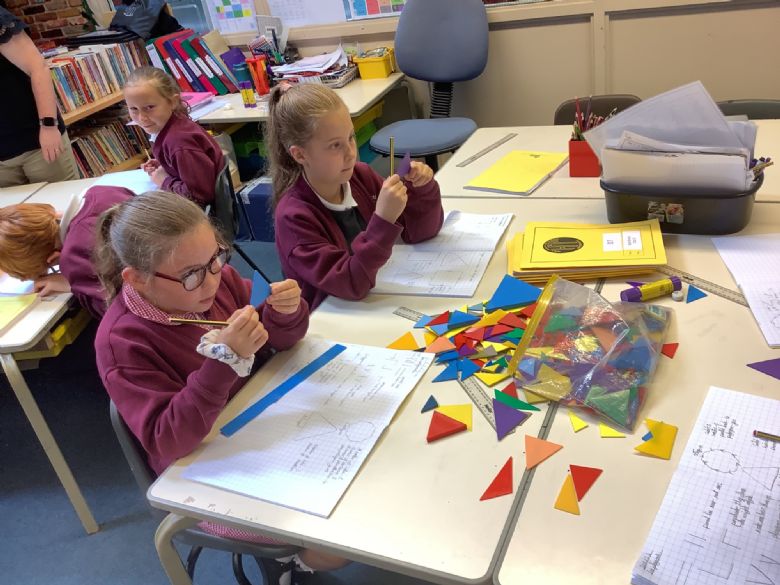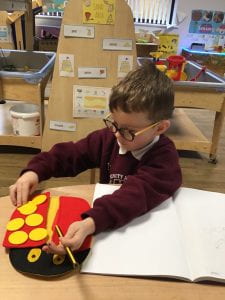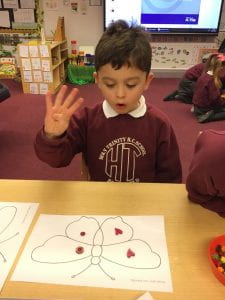Maths

Mathematics is essential to everyday life. Through teaching and learning in this area we aim to ensure that all pupils become confident and fluent in the fundamentals of mathematics, including through varied and frequent practise with increasingly complex problems over time.
Documents are available to view at the bottom of the page (overview of topics, progression of skills etc...)
Our teaching programme is based on the Primary National Curriculum 2014 and sets out what children learn on a year-by-year basis in the areas of:
• Number – place value; addition & subtraction; multiplication & division; fractions, decimals and percentages
• Measurement
• Geometry – properties of shape; position & direction
• Statistics
We understand the importance of maths in life and are committed to ensuring that every child leaves our school with confidence in the subject and a sound mathematical knowledge. We teach daily maths lessons in the classroom, and also outside, taking account of every type of learner and making maths fun and engaging at all levels.
Foundation Stage ( Reception)
The children in our Reception (Foundation Stage) class follow the Early Years and Foundation Stage Curriculum EYFS. The focus of mathematical teaching and learning for this age group is very practical to ensure that the children are fully engaged while learning the initial concepts through role play, dressing up, storytelling etc.
Key Stage 1 (Years 1 & 2)
In Key Stage 1 the children continue to build on the skills and knowledge gained in Foundation Stage. They learn about number bonds, how to count, read, write and order numbers to 100 and beyond, where appropriate. Through practical activities children explore and gain a better understanding of shape and space and through talk they begin to grasp and use mathematical language. By the end of Year 2 they start to use the written methods of calculation.
Key Stage 2 (Years 3 to 6)
By Key Stage 2 children are becoming much more confident and fluent with numbers, calculating mentally and using written methods. They increase their understanding of the links between the four mathematical operations (addition, subtraction, multiplication and division) and how to use that knowledge to check calculations. Children are given every opportunity to link their mathematics to “real life problems.”
Why is Mathematics so important?
Mathematics equips children with a uniquely powerful set of tools to understand and change the world. These tools include logical reasoning, problem-solving skills, and the ability to think in abstract ways. As such, mathematics is a creative discipline. It can stimulate moments of happiness and wonder when a child solves a problem for the first time, discovers a more efficient solution to a problem or suddenly sees hidden connections.
Throughout history, mathematics has shaped the way we view the world. The early study of astronomy demanded the expansion of our understanding of mathematics and made possible such realizations as the size and weight of the earth, our distance from the sun, the fact that we revolve around it, and other discoveries that allowed us to move forward in our body of knowledge without which we would not have any of our modern marvels of technology.
Mathematics remains as important today. Many life stages and skills require a solid grasp of mathematics, from entering university to balancing a household budget, applying for a home loan, or assessing a possible business opportunity. When children eventually leave education and seek out a career, they will inevitably need to call upon the mathematical skills and strategies they have learnt at school. They will soon realise that many careers require a solid understanding of maths. Doctors, lawyers, accountants and other professionals use maths on a daily basis, as do builders, plumbers, engineers and managers. Maths is a critical skill for many professions and opens a world of opportunity for children.
Each year, the children follow a programme of work which builds on what has been learnt before. In addition to these lessons, Mathematics is practised in other areas of the curriculum such as in Science, Design Technology, Art, History, Geography and I.C.T.
2025-26
Class 1
Pre-School have been learning about AB patterns.
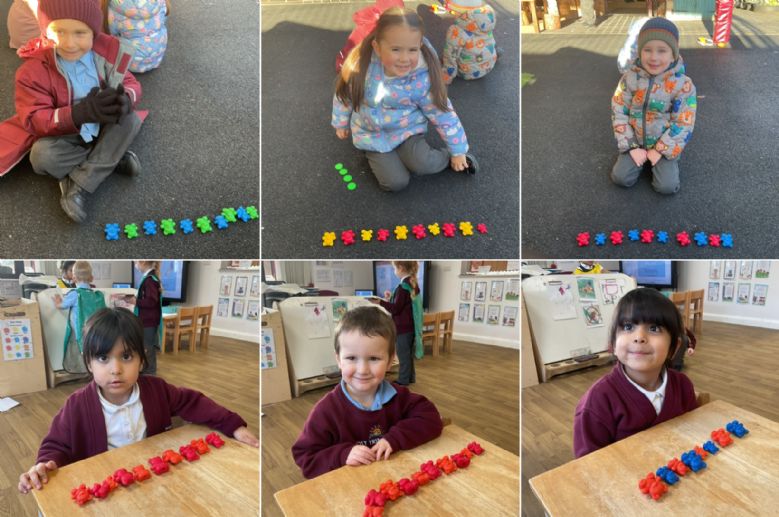
Reception have been subitising up to 5.
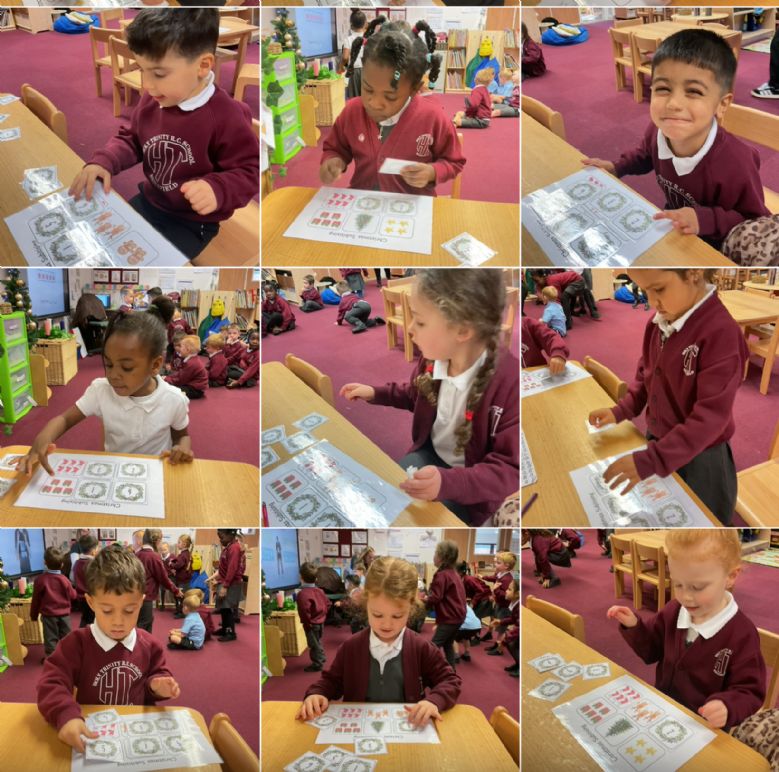
Year 2 – Mastery in Number
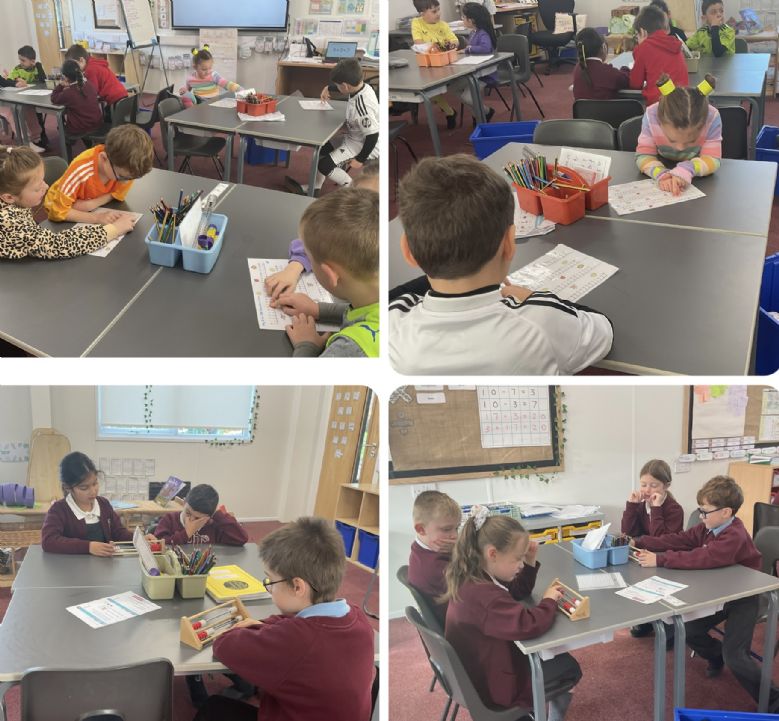
Year 5 Maths Competition
Year 5 Team of Mathematics qualified for the Maths Challenge Grand Final at Turf Moor in May 2026!
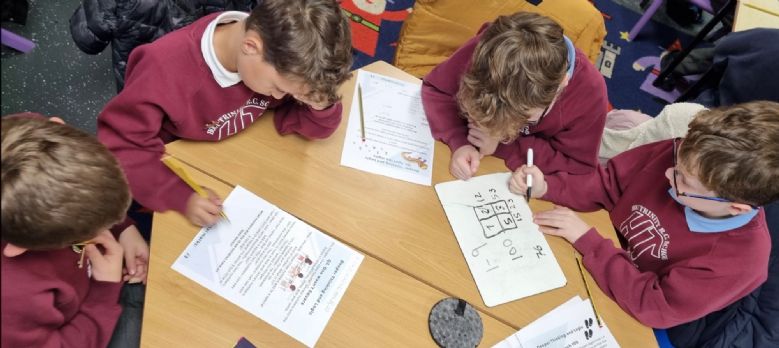
Pre-School- Colours
Pre-School have been busy learning about colours. They have been on colour hunts and also explored mixing primary colours to see what secondary colour it makes.
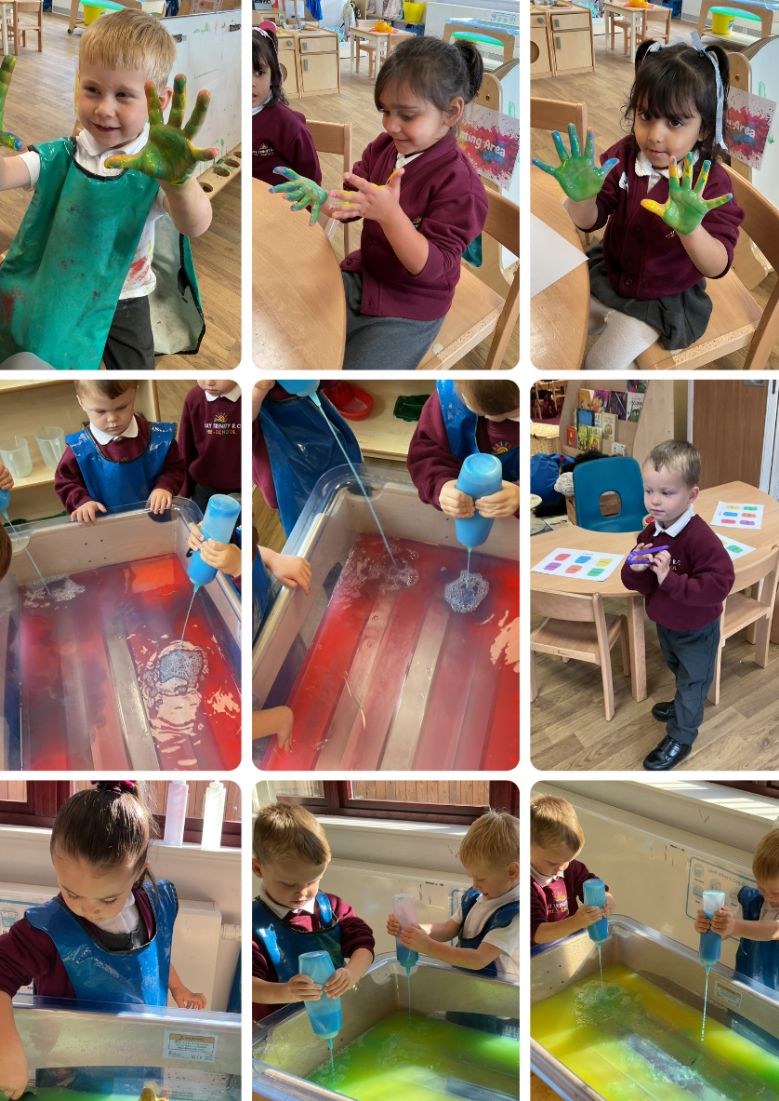
2024-25
Maths Challenge
4 Year 5 children took part in a Maths Challenge Final at BFC. They had a fantastic time and enjoyed a tour of the football ground.

HSBC Visit
We had a visit from HSBC, they did a different session with each Class!

Class 3 TTRS Day

Class 3 - Measurement
Class 3 investigated if children with longer foot lengths could jump further.
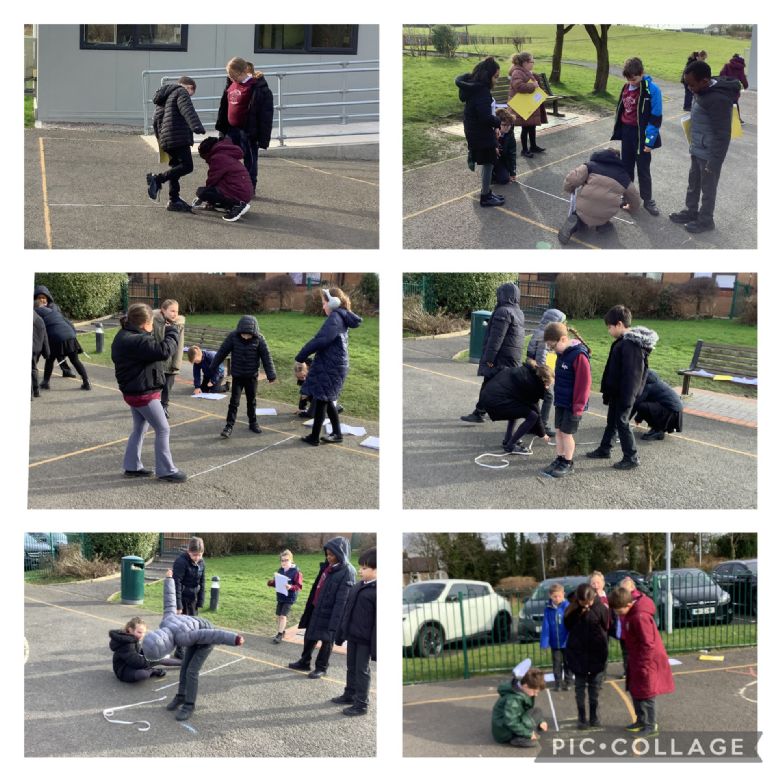
Class 1 have been comparing and ordering the length of caterpillars.
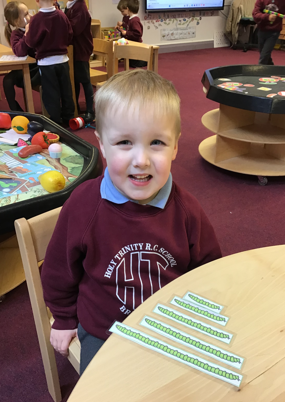

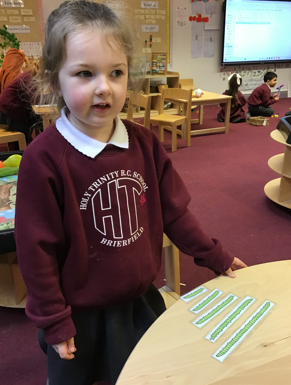
Four children from Year 5 represented Holy Trinity at two Maths competitions. The boys won the first round and qualified for the Burnley and Pendle Maths Challenge Final!

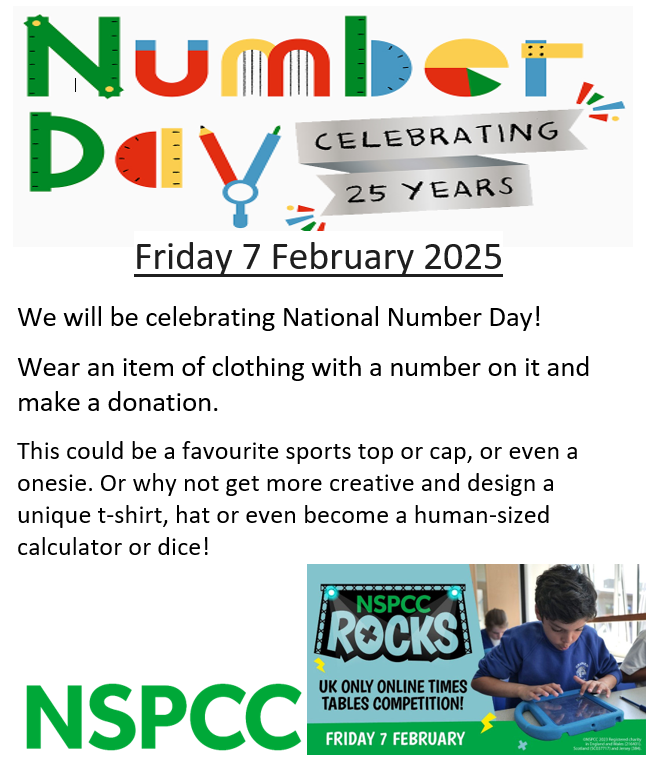
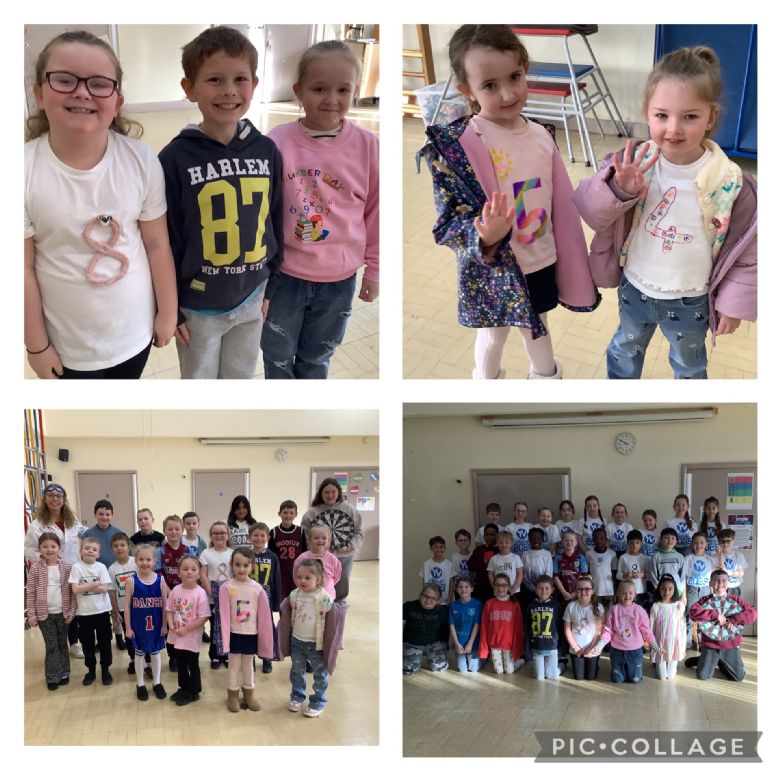
Four children from Year 4 represented Holy Trinity at two Maths competitions. The boys won the first round and qualified for the Burnley and Pendle Maths Challenge Final! Fantastically, the boys won!
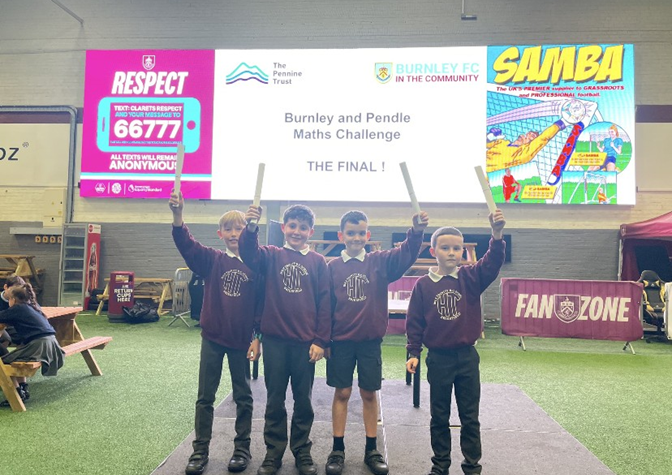
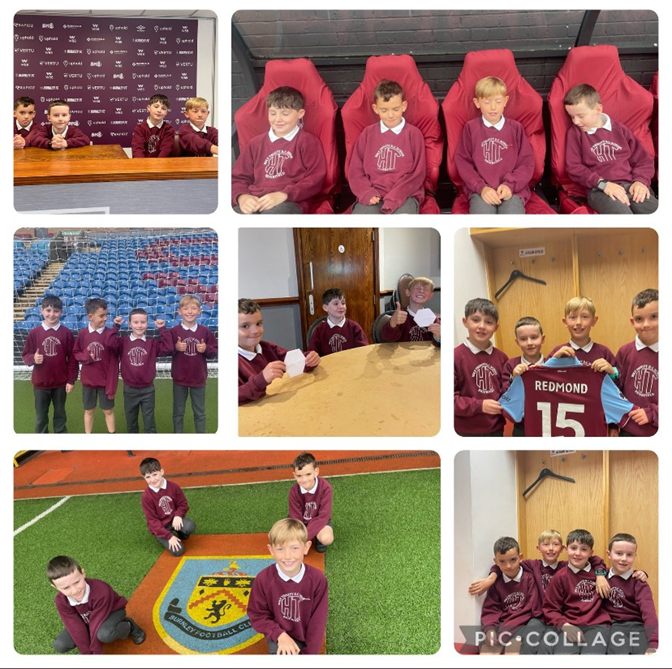
Four children from Year 5 represented Holy Trinity at a Maths event held over 4 weeks at Fisher-More RC Humanities College in Colne. After completing various challenges over the weeks, the last session involved a quiz, and we are proud to say our children won overall.
Using manipulative to support our learning in Maths.
Class 3 using marshmallows and spaghetti to make 3D shapes!
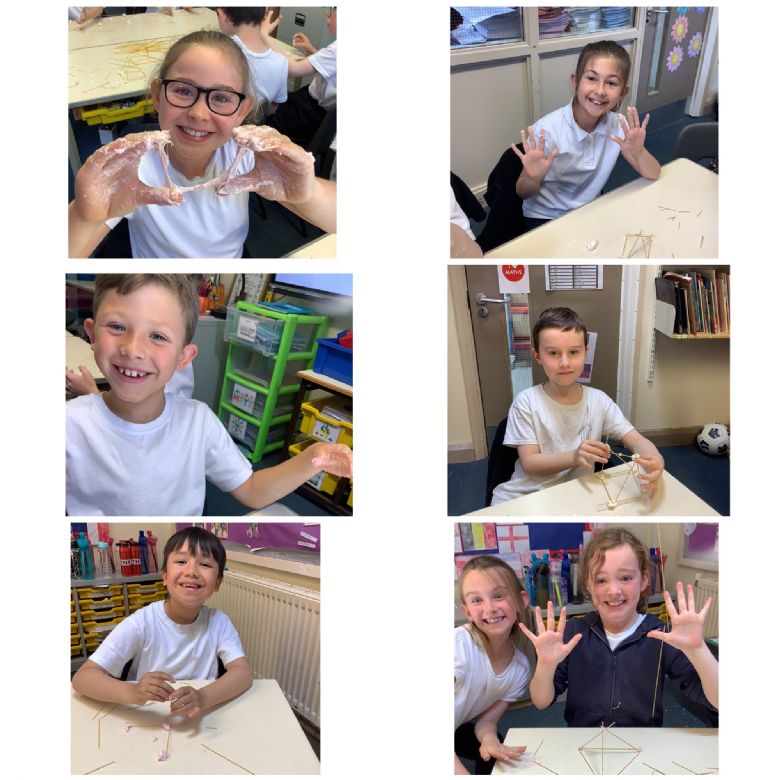
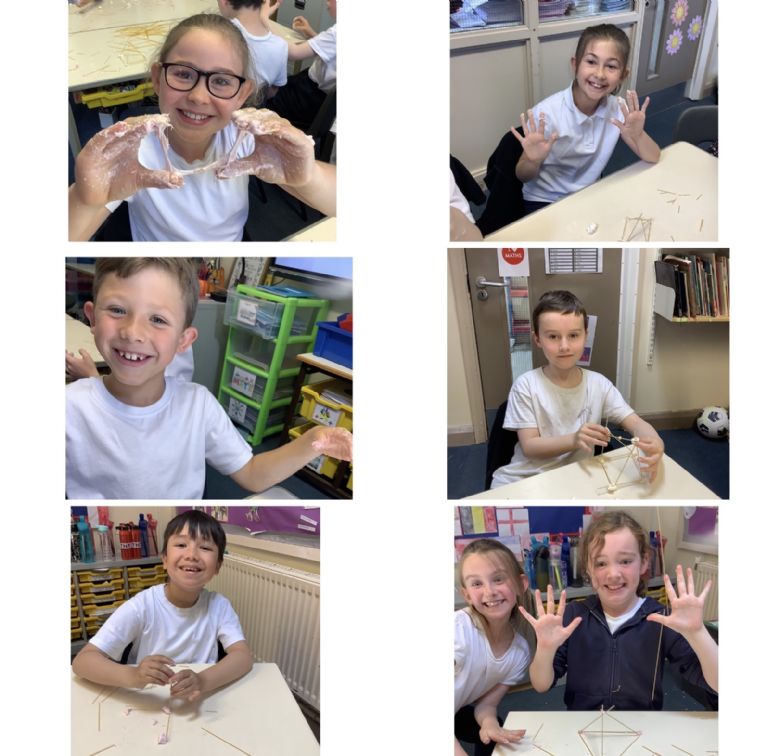
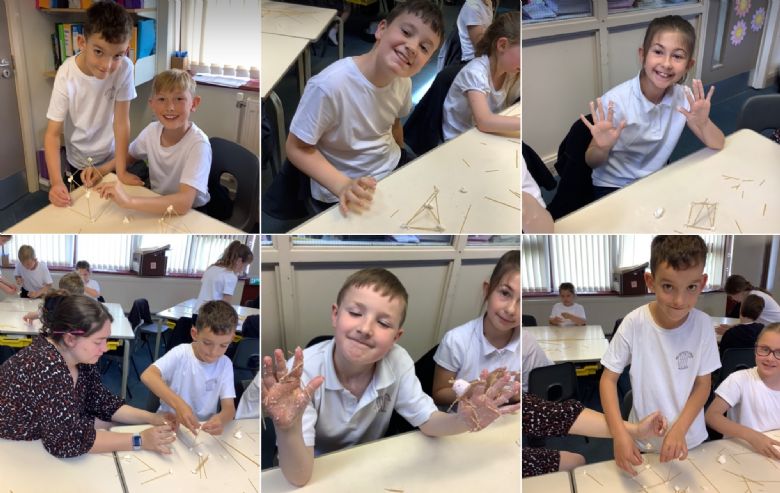
Class 3 measuring and trimming straws to an accurate length. Using the straws to show The perimeter of a shape.


Class 4 enjoyed making some parabolic curves in Maths.



